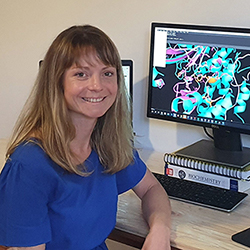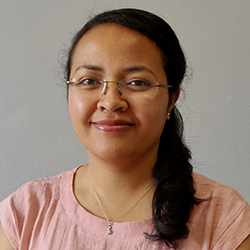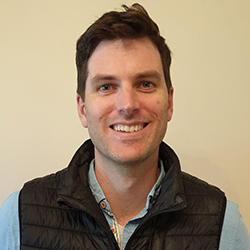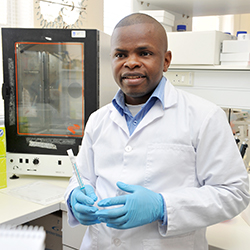Four of UCT’s best now 2020 FLAIR fellows
11 May 2020 | Story Nadia Krige. Photo Pete Linforth, Pixabay. Voice Nash Makado. Read time 9 min.
Four young researchers from the University of Cape Town (UCT) have been selected to form part of the 2020 cohort of Future Leaders – African Independent Research (FLAIR) fellows. These fellowships are awarded to talented African early-career researchers whose work is focused on solving the needs of the continent.
The initiative is a partnership between the African Academy of Sciences (AAS) and The Royal Society, supported by the Global Challenges Research Fund. This year, the 30 promising young researchers will receive up to GBP300 000 each to conduct research over two years.
The 2020 cohort was selected from a competitive pool of more than 700 applicants. Among the 30 successful candidates, four are based at UCT.
“Postdoctoral programmes are vital in training and developing early career researchers into research leaders.”
They are Dr Lauren Arendse from the Drug Discovery and Development Centre (H3D); Dr Rondrotiana Barimalala and Dr Ross Blamey, both from the Department of Oceanography; and Dr Felix Sizwe Dube from the Department of Molecular & Cell Biology.
They join the inaugural intake of 2019 FLAIR fellows, who are already making contributions to science on the continent.
One of the goals of the FLAIR Fellowship programme is to help researchers develop independent careers within African institutions, and ultimately, to lead their own research groups. The FLAIR partnership with the Royal Society is one of several initiatives through which the AAS is supporting African institutions in retaining scientific talent and improving the continent’s scientific input and sustainable development.
“The AAS welcomes the new cohort of FLAIR grantees to our growing postdoctoral family,” says the society’s executive director, Professor Nelson Torto. “Postdoctoral programmes are vital in training and developing early career researchers into research leaders whose scientific leadership will influence policies that will promote the socio-economic development of the continent.”
Dr Lauren Arendse, Drug Discovery and Development Centre (H3D)

Arendse is leading a drug discovery programme that aims to explore novel treatments for malaria by building on the knowledge gained from using human kinase inhibitors to treat cancer.
The Plasmodium parasite, which causes malaria, relies on enzymes known as kinases to reproduce and spread via the mosquito. Arendse and her colleagues are looking for new ways to disrupt multiple stages of the parasite’s lifecycle by inhibiting novel kinase targets.
By producing Plasmodium kinases in a laboratory, studying their structure and function and testing the ability of compounds to selectively inhibit them, Arendse and her team will gain insight into the role of these enzymes in the parasite, enabling the design of new antimalarials.
“This fellowship will give me an incredible opportunity to establish myself as an independent researcher and the freedom to explore my own scientific ideas, while providing me with a strong support network and excellent training opportunities,” says Arendse.
Dr Rondrotiana Barimalala, Department of Oceanography

Historically, tropical cyclones that form on the south-eastern coast of Africa have been considered ‘too weak’ for inclusion in hazard planning. But with the catastrophic damage caused by cyclones Idai and Kenneth in 2019, it has become clear that these weather events are intensifying.
To understand what’s behind this change, Barimalala is investigating the role that ocean eddies, upper ocean temperature and salinity play in the occurrence of tropical cyclones in this region.
“For FLAIR, I will particularly focus on the role of the oceanic processes on tropical cyclone intensification in the Mozambique Channel,” she explains.
“The FLAIR fellowship will allow us to focus on developing our research and building our careers as independent researchers. It is also an opportunity to showcase the importance of science for the development of a country, which is usually significantly undermined in Africa.”
Dr Ross Blamey, Department of Oceanography

Along with collaborators at UCT and in the United Kingdom, Blamey is currently investigating the role large thunderstorms play in the climate along the tropical edge of southern Africa.
“Compared to other regions of the world, little is known about these storms in southern Africa, yet they are an important component of our climate system,” he says.
Through the FLAIR fellowship, he seeks to address this gap in African climate science using a combination of newly available observations and state-of-the art climate model output.
A better understanding of the present and projected future climate of this region will help address some of the complex socio-economic and environmental issues it faces in relation to water and food security.
Blamey adds that one of the exciting things about being a FLAIR fellow is having access to a network of other young African academics doing research that is relevant to the continent.
Dr Felix Sizwe Dube, Department of Molecular & Cell Biology

“A recent but rapidly expanding component of my research is around the evolution of the microbiome at different body sites in African children,” he says. “[I’m looking at] the relationship between the microbiome and child health, with a specific focus on respiratory and skin infections, as well as antimicrobial resistance.”
As part of his FLAIR research, Dube will lead the microbiological aspects of a clinical trial that seeks to understand the effects of a proposed long-term treatment (the antibiotic azithromycin) on the microbiome in the lungs and airways of children with HIV and chronic lung disease in sub-Saharan Africa.
“Much of [my research] has been done with collaborators and other established research groups,” says Dube. “While it’s been a great training ground, I would like to start carving out my own research niche. This award is key to setting this in motion.”
Applications for next year’s FLAIR Fellowships are open. Download this document for more information and internal cut-off dates.
 This work is licensed under a Creative Commons Attribution-NoDerivatives 4.0 International License.
This work is licensed under a Creative Commons Attribution-NoDerivatives 4.0 International License.
Please view the republishing articles page for more information.
Highlights from 2020
As we look back on 2020, we celebrate some of the stories that were popular with readers of the UCT News website during the year.

UCT marked a historic moment on its journey of transformation when it launched the Khoi and San Centre on 21 September.
11 Jan 2021 - >10 min read Highlight from 2020
In September, over 30 members of the UCT community were honoured in the Mail & Guardian 200 Young South Africans list.
08 Jan 2021 - 9 min read Highlight from 2020
In April, UCT’s Professor Kelly Chibale was chosen as one of the world’s top 60 inspirational leaders in the pharmaceutical industry.
23 Dec 2020 - 7 min read Highlight from 2020
In April 2020, women took four of the five top spots in the final-year civil engineering class, a salute to excellence and a spur to equality.
22 Dec 2020 - >10 min read Highlight from 2020
The Mamokgethi Phakeng Scholarship was launched in 2020 to support young black women in STEM fields of study at UCT.
21 Dec 2020 - 9 min read Highlight from 2020























